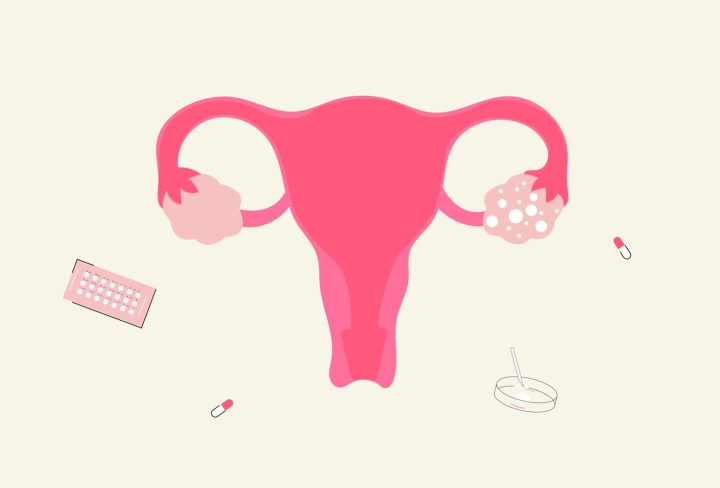Polycystic ovary syndrome (PCOS) is a common hormonal disorder affecting women of reproductive age. It is estimated that 1 in 10 women of childbearing age have PCOS. Despite its prevalence, many women are still unfamiliar with the condition, which can lead to delayed diagnosis and treatment. In this blog post, we will provide an overview of PCOS, including its symptoms, causes, and available treatment options.
Symptoms of PCOS:
- Irregular periods or no periods at all
- Excessive hair growth on the face, chest, or back
- Acne or oily skin
- Weight gain or difficulty losing weight
- Thinning hair or hair loss on the scalp
- Darkening of skin in the armpits, neck, or groin area
- Infertility or difficulty getting pregnant
Causes of PCOS:
- Hormonal imbalance: Women with PCOS produce higher levels of androgens, a type of male hormone, which can interfere with ovulation and lead to irregular periods.
- Insulin resistance: Insulin is a hormone that helps regulate blood sugar levels. Women with PCOS often have insulin resistance, which can lead to high levels of insulin in the body. This can cause the ovaries to produce more androgens, leading to PCOS symptoms.
- Genetics: PCOS tends to run in families, suggesting a genetic component.
Treatment options for PCOS:
- Lifestyle changes: Losing weight through diet and exercise can help regulate hormone levels and improve symptoms of PCOS. Quitting smoking and reducing alcohol intake can also be beneficial.
- Medications: Birth control pills can regulate periods and reduce androgen levels. Metformin, a medication used to treat diabetes, can also help regulate insulin levels and improve symptoms.
- Fertility treatments: Women with PCOS who are trying to conceive may benefit from fertility treatments such as ovulation induction, intrauterine insemination (IUI), or in vitro fertilization (IVF).
- Surgery: In rare cases, surgery may be recommended to remove small cysts on the ovaries that are causing pain or other symptoms.
In conclusion, PCOS is a common hormonal disorder that can cause a range of symptoms, including irregular periods, excessive hair growth, and infertility. If you are experiencing symptoms of PCOS, it is important to speak with your healthcare provider to get an accurate diagnosis and explore available treatment options. Making lifestyle changes, taking medications, and pursuing fertility treatments can all help manage symptoms and improve quality of life for women with PCOS.

